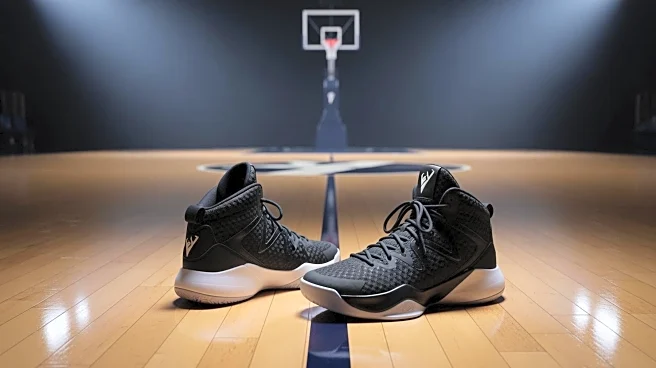What's Happening?
The WNBA is approaching a critical juncture as its collective bargaining agreement with the players' union is set to expire in two weeks, potentially leading to a work stoppage. The league has seen significant
growth, with the recent WNBA Finals drawing 1.5 million average viewers and plans to introduce five new franchises over the next three seasons. However, negotiations have stalled over player demands for a larger share of revenue and higher salaries, including supermax contracts exceeding $1 million annually. Maverick Carter, a business partner of LeBron James, is reportedly planning to establish a new women's professional basketball league to rival the WNBA, leveraging his extensive business connections.
Why It's Important?
The expiration of the WNBA's collective bargaining agreement could lead to a work stoppage, affecting players, fans, and the league's financial stability. The introduction of new franchises and a lucrative media rights deal underscores the league's growth, but unresolved labor issues threaten to undermine these advancements. Maverick Carter's potential new league could offer players alternative opportunities, challenging the WNBA's dominance in women's professional basketball. This development could reshape the landscape of women's sports, influencing player contracts, league operations, and fan engagement.
What's Next?
As the expiration date of the collective bargaining agreement approaches, negotiations between the WNBA and the players' union are likely to intensify. The league must address player demands to avoid a work stoppage and maintain its growth trajectory. Meanwhile, Maverick Carter's plans for a rival league could gain traction, especially if the WNBA fails to resolve its labor issues. Stakeholders, including team owners, sponsors, and fans, will be closely monitoring these developments, which could lead to significant changes in the women's basketball industry.
Beyond the Headlines
The potential establishment of a rival league by Maverick Carter highlights broader issues within women's professional sports, such as equitable pay and player treatment. This situation raises ethical questions about the exploitation of athletes and the need for fair labor practices. The WNBA's handling of these negotiations could set a precedent for other sports leagues facing similar challenges, influencing public perception and policy regarding athlete compensation and rights.









